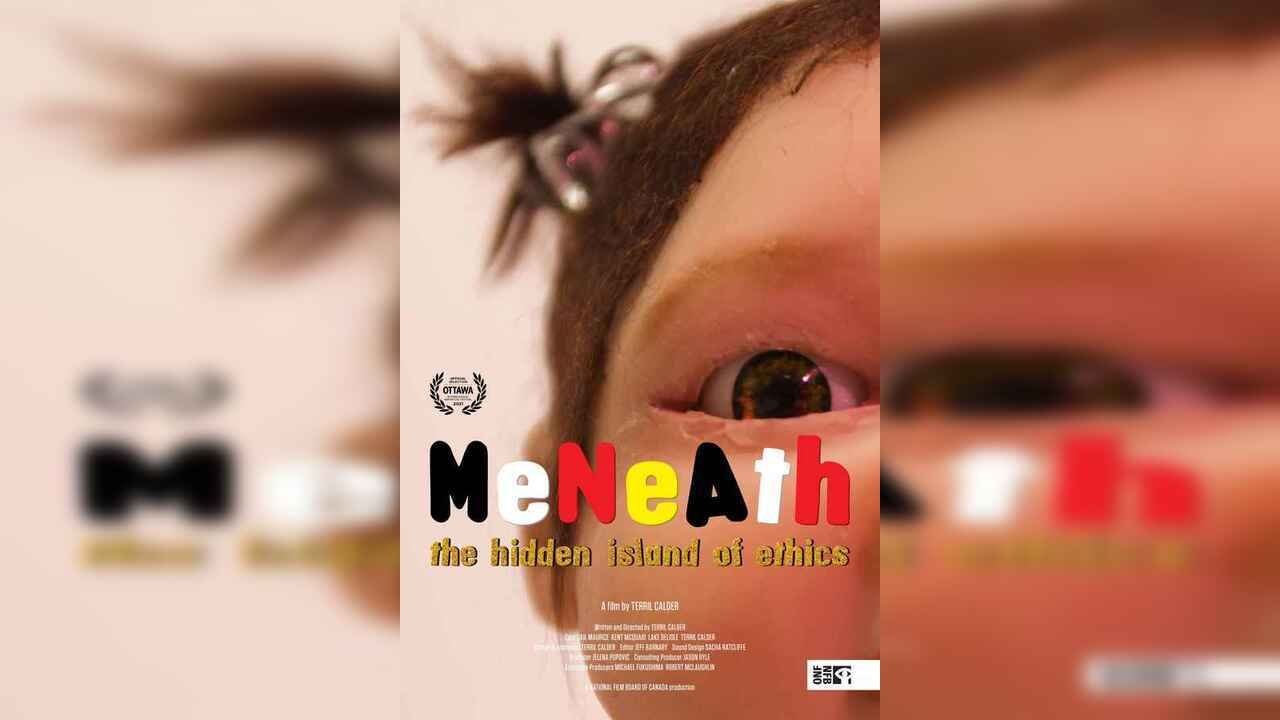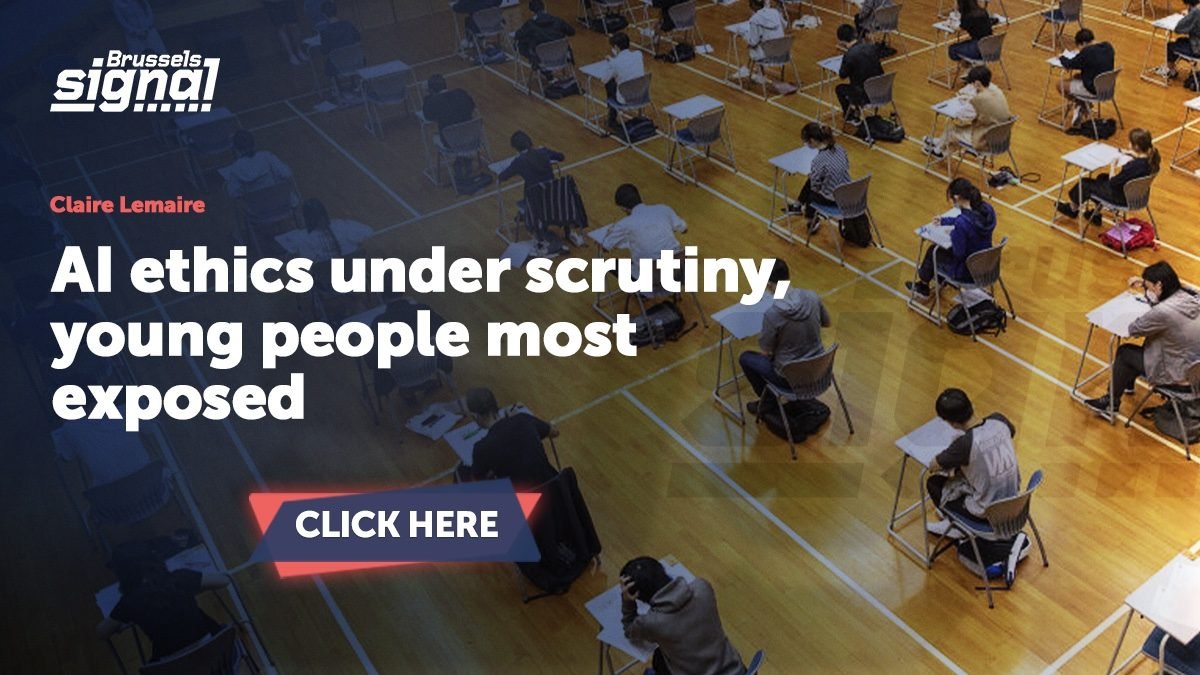Ethics & Policy
Saudi Arabia shapes the future of AI ethics through UNESCO-affiliated ICAIRE

Saudi Arabia has prioritized ensuring human well-being in both the present and the future amid concerns over the potential misuse of AI
Saudi Arabia has taken it upon itself to adopt artificial intelligence (AI) ethics worldwide, drawing on its prominent international standing and pioneering role in the fields of data and AI. Notably, the Kingdom was among the first countries to adopt UNESCO’s Recommendation on the Ethics of Artificial Intelligence, approved in November 2021 by 193 member states.
Saudi Arabia has also continued to work diligently on this file, especially as AI technologies evolve rapidly and impact daily life across societies. With growing concerns over the potential misuse of such technologies in the absence of ethical frameworks, Saudi Arabia has prioritized ensuring human well-being in both the present and the future.
SDAIA raises AI awareness
Saudi Arabia has adhered to its international role in establishing an ethical framework for AI based on core principles such as transparency, privacy protection, fairness and justice. Through the Saudi Data and AI Authority (SDAIA), and in collaboration with UNESCO, the Kingdom is contributing to shaping an AI future that adheres to ethical standards, ensuring these technologies enrich societies in a positive way.
Backed by continuous support from His Royal Highness Prince Mohammed bin Salman bin Abdulaziz Al Saud, Crown Prince and Prime Minister, and Chairman of SDAIA’s Board of Directors, SDAIA has intensified its efforts to raise awareness of AI technologies locally. These efforts align with Saudi Vision 2030, which seeks to build a knowledge-based society, increase awareness of AI ethics and develop national capacities in this vital field.
Saudi Arabia establishes ICAIRE
On the international level, Saudi Arabia proposed the establishment of the International Center for Artificial Intelligence Research and Ethics (ICAIRE), which later became a Category 2 center under UNESCO. Headquartered in Riyadh, ICAIRE represents one of SDAIA’s most notable efforts to advance AI ethics and aims to serve as a global beacon in this field.
In July 2023, the Saudi Cabinet approved the establishment of ICAIRE in Riyadh, granting it legal personality and administrative and financial independence. On November 16 of the same year, the 42nd UNESCO General Conference approved granting ICAIRE Category 2 recognition, thanks to the efforts of SDAIA in cooperation with the Saudi National Commission for Education, Culture and Science.
The center focuses on four key areas: supporting research and development in AI, promoting awareness and communication about AI ethics, providing policy recommendations and enhancing AI capacity building. It also contributes to international AI efforts aimed at serving humanity.
Read: Smart City Expo and GSMA Digital Leaders Program to debut at MWC25 Doha
ICAIRE leads key initiatives
ICAIRE has placed special emphasis on capacity building at the international level. In 2025, the center announced the launch of the second edition of the Elevate Initiative, in partnership with Microsoft and with the support of SDAIA. The program aims to train 5,000 women worldwide, as part of a broader strategy to empower 25,000 women globally in the AI sector.
ICAIRE also launched the THAKAI Platform as a leading knowledge resource for ethical and responsible AI. It provides curated content in core AI fields and includes tools such as the Glossary and the AI & Data Radar. The center invites experts to contribute to enriching the platform’s content and advancing trustworthy AI aligned with UNESCO’s principles and the UN’s Sustainable Development Goals.
Ethics & Policy
Meneath: The Hidden Island of Ethics

Meneath: The Hidden Island of Ethics : Release Date, Trailer, Cast & Songs
| Title | Meneath: The Hidden Island of Ethics |
| Release status | Released |
| Release date | Sep 10, 2021 |
| Language | English |
| Genre | Animation |
| Actors | Gail MauriceLake DelisleKent McQuaid |
| Director | Terril Calder |
| Critic Rating | 7.2 |
| Duration | 20 mins |
Meneath: The Hidden Island of Ethics Storyline
Meneath: The Hidden Island of Ethics
Meneath: The Hidden Island of Ethics – Star Cast And Crew
Image Gallery
Ethics & Policy
5 interesting stats to start your week

Third of UK marketers have ‘dramatically’ changed AI approach since AI Act
More than a third (37%) of UK marketers say they have ‘dramatically’ changed their approach to AI, since the introduction of the European Union’s AI Act a year ago, according to research by SAP Emarsys.
Additionally, nearly half (44%) of UK marketers say their approach to AI is more ethical than it was this time last year, while 46% report a better understanding of AI ethics, and 48% claim full compliance with the AI Act, which is designed to ensure safe and transparent AI.
The act sets out a phased approach to regulating the technology, classifying models into risk categories and setting up legal, technological, and governance frameworks which will come into place over the next two years.
However, some marketers are sceptical about the legislation, with 28% raising concerns that the AI Act will lead to the end of innovation in marketing.
Source: SAP Emarsys
Shoppers more likely to trust user reviews than influencers
 Nearly two-thirds (65%) of UK consumers say they have made a purchase based on online reviews or comments from fellow shoppers, as opposed to 58% who say they have made a purchase thanks to a social media endorsement.
Nearly two-thirds (65%) of UK consumers say they have made a purchase based on online reviews or comments from fellow shoppers, as opposed to 58% who say they have made a purchase thanks to a social media endorsement.
Sports and leisure equipment (63%), decorative homewares (58%), luxury goods (56%), and cultural events (55%) are identified as product categories where consumers are most likely to find peer-to-peer information valuable.
Accurate product information was found to be a key factor in whether a review was positive or negative. Two-thirds (66%) of UK shoppers say that discrepancies between the product they receive and its description are a key reason for leaving negative reviews, whereas 40% of respondents say they have returned an item in the past year because the product details were inaccurate or misleading.
According to research by Akeeno, purchases driven by influencer activity have also declined since 2023, with 50% reporting having made a purchase based on influencer content in 2025 compared to 54% two years ago.
Source: Akeeno
77% of B2B marketing leaders say buyers still rely on their networks
 When vetting what brands to work with, 77% of B2B marketing leaders say potential buyers still look at the company’s wider network as well as its own channels.
When vetting what brands to work with, 77% of B2B marketing leaders say potential buyers still look at the company’s wider network as well as its own channels.
Given the amount of content professionals are faced with, they are more likely to rely on other professionals they already know and trust, according to research from LinkedIn.
More than two-fifths (43%) of B2B marketers globally say their network is still their primary source for advice at work, ahead of family and friends, search engines, and AI tools.
Additionally, younger professionals surveyed say they are still somewhat sceptical of AI, with three-quarters (75%) of 18- to 24-year-olds saying that even as AI becomes more advanced, there’s still no substitute for the intuition and insights they get from trusted colleagues.
Since professionals are more likely to trust content and advice from peers, marketers are now investing more in creators, employees, and subject matter experts to build trust. As a result, 80% of marketers say trusted creators are now essential to earning credibility with younger buyers.
Source: LinkedIn
Business confidence up 11 points but leaders remain concerned about economy
 Business leader confidence has increased slightly from last month, having risen from -72 in July to -61 in August.
Business leader confidence has increased slightly from last month, having risen from -72 in July to -61 in August.
The IoD Directors’ Economic Confidence Index, which measures business leader optimism in prospects for the UK economy, is now back to where it was immediately after last year’s Budget.
This improvement comes from several factors, including the rise in investment intentions (up from -27 in July to -8 in August), the rise in headcount expectations from -23 to -4 over the same period, and the increase in revenue expectations from -8 to 12.
Additionally, business leaders’ confidence in their own organisations is also up, standing at 1 in August compared to -9 in July.
Several factors were identified as being of concern for business leaders; these include UK economic conditions at 76%, up from 67% in May, and both employment taxes (remaining at 59%) and business taxes (up to 47%, from 45%) continuing to be of significant concern.
Source: The Institute of Directors
Total volume of alcohol sold in retail down 2.3%
 The total volume of alcohol sold in retail has fallen by 2.3% in the first half of 2025 compared to the previous year, equivalent to 90 million fewer litres. Value sales are also down by 1.1% compared to the same period in 2024.
The total volume of alcohol sold in retail has fallen by 2.3% in the first half of 2025 compared to the previous year, equivalent to 90 million fewer litres. Value sales are also down by 1.1% compared to the same period in 2024.
At the same time, retail sales of non-alcoholic drinks have increased by 5.5% compared to last year, while volume sales are up by 2.3%, equivalent to a further 1.5 billion litres.
As the demand for non-alcoholic beverages grows, people increasingly expect these options to be available in their local bars and restaurants, with 55% of Brits and Europeans now expecting bars to always serve non-alcoholic beer.
As well as this, there are shifts happening within the alcoholic beverages category with value sales of no and low-alcohol spirits rising by 16.1%, and sales of ready-to-drink spirits growing by 11.6% compared to last year.
Source: Circana
Ethics & Policy
AI ethics under scrutiny, young people most exposed

New reports into the rise of artificial intelligence (AI) showed incidents linked to ethical breaches have more than doubled in just two years.
At the same time, entry-level job opportunities have been shrinking, partly due to the spread of this automation.
AI is moving from the margins to the mainstream at extraordinary speed and both workplaces and universities are struggling to keep up.
Tools such as ChatGPT, Gemini and Claude are now being used to draft emails, analyse data, write code, mark essays and even decide who gets a job interview.
Alongside this rapid rollout, a March report from McKinsey, one by the OECD in July and an earlier Rand report warned of a sharp increase in ethical controversies — from cheating scandals in exams to biased recruitment systems and cybersecurity threats — leaving regulators and institutions scrambling to respond.
The McKinsey survey said almost eight in 10 organisations now used AI in at least one business function, up from half in 2022.
While adoption promises faster workflows and lower costs, many companies deploy AI without clear policies. Universities face similar struggles, with students increasingly relying on AI for assignments and exams while academic rules remain inconsistent, it said.
The OECD’s AI Incidents and Hazards Monitor reported that ethical and operational issues involving AI have more than doubled since 2022.
Common concerns included accountability — who is responsible when AI errs; transparency — whether users understand AI decisions; and fairness, whether AI discriminates against certain groups.
Many models operated as “black boxes”, producing results without explanation, making errors hard to detect and correct, it said.
In workplaces, AI is used to screen CVs, rank applicants, and monitor performance. Yet studies show AI trained on historical data can replicate biases, unintentionally favouring certain groups.
Rand reported that AI was also used to manipulate information, influence decisions in sensitive sectors, and conduct cyberattacks.
Meanwhile, 41 per cent of professionals report that AI-driven change is harming their mental health, with younger workers feeling most anxious about job security.
LinkedIn data showed that entry-level roles in the US have fallen by more than 35 per cent since 2023, while 63 per cent of executives expected AI to replace tasks currently done by junior staff.
Aneesh Raman, LinkedIn’s chief economic opportunity officer, described this as “a perfect storm” for new graduates: Hiring freezes, economic uncertainty and AI disruption, as the BBC reported August 26.
LinkedIn forecasts that 70 per cent of jobs will look very different by 2030.
Recent Stanford research confirmed that employment among early-career workers in AI-exposed roles has dropped 13 per cent since generative AI became widespread, while more experienced workers or less AI-exposed roles remained stable.
Companies are adjusting through layoffs rather than pay cuts, squeezing younger workers out, it found.
In Belgium, AI ethics and fairness debates have intensified following a scandal in Flanders’ medical entrance exams.
Investigators caught three candidates using ChatGPT during the test.
Separately, 19 students filed appeals, suspecting others may have used AI unfairly after unusually high pass rates: Some 2,608 of 5,544 participants passed but only 1,741 could enter medical school. The success rate jumped to 47 per cent from 18.9 per cent in 2024, raising concerns about fairness and potential AI misuse.
Flemish education minister Zuhal Demir condemned the incidents, saying students who used AI had “cheated themselves, the university and society”.
Exam commission chair Professor Jan Eggermont noted that the higher pass rate might also reflect easier questions, which were deliberately simplified after the previous year’s exam proved excessively difficult, as well as the record number of participants, rather than AI-assisted cheating alone.
French-speaking universities, in the other part of the country, were not concerned by this scandal, as they still conduct medical entrance exams entirely on paper, something Demir said he was considering going back to.
-

 Business3 days ago
Business3 days agoThe Guardian view on Trump and the Fed: independence is no substitute for accountability | Editorial
-
Tools & Platforms3 weeks ago
Building Trust in Military AI Starts with Opening the Black Box – War on the Rocks
-

 Ethics & Policy1 month ago
Ethics & Policy1 month agoSDAIA Supports Saudi Arabia’s Leadership in Shaping Global AI Ethics, Policy, and Research – وكالة الأنباء السعودية
-

 Events & Conferences3 months ago
Events & Conferences3 months agoJourney to 1000 models: Scaling Instagram’s recommendation system
-

 Jobs & Careers2 months ago
Jobs & Careers2 months agoMumbai-based Perplexity Alternative Has 60k+ Users Without Funding
-

 Funding & Business2 months ago
Funding & Business2 months agoKayak and Expedia race to build AI travel agents that turn social posts into itineraries
-

 Education2 months ago
Education2 months agoVEX Robotics launches AI-powered classroom robotics system
-

 Podcasts & Talks2 months ago
Podcasts & Talks2 months agoHappy 4th of July! 🎆 Made with Veo 3 in Gemini
-

 Education2 months ago
Education2 months agoAERDF highlights the latest PreK-12 discoveries and inventions
-

 Podcasts & Talks2 months ago
Podcasts & Talks2 months agoOpenAI 🤝 @teamganassi

















